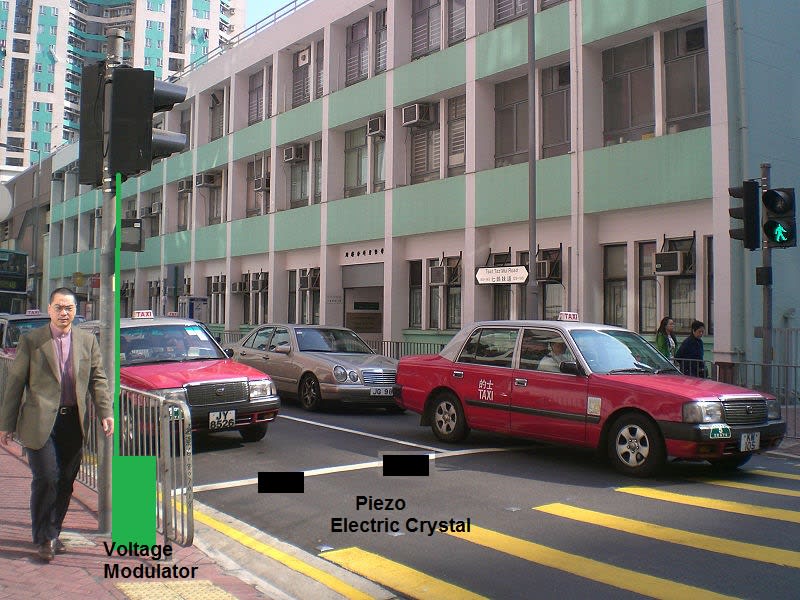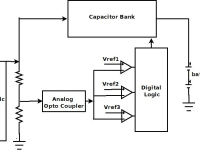Energy conservation is a key issue faced by all the countries these days. It has been estimated that 20 to 50 % of the energy consumed is due to lighting. When vehicles stop for signals the kinetic energy gets wasted as heat. We can trap some part of this energy and utilize it for lighting streets as wells as signal lights. Piezo electric crystals convert mechanical energy to electrical energy. However the voltage generated using piezo electric crystals is proportional to the applied force which in turn is a function of time.
In this work we place the piezo electric crystals at the traffic line as shown in figure 1 marked by black boxes. Whenever a vehicle crosses the line, it produces a voltage which can be stored for future use. However it must be noted that most of the voltage is obtained when the vehicle comes to rest on it. The kinetic energy goes to zero in a very short period time. The voltage obtained by quartz crystal is assumed to vary, say from 0 to 100V depending on the force applied.
This voltage is converted into a low voltage of around 1V (maximum) by resistor divider. This low voltage is fed to a comparator bank through an analog optocoupler. Depending on the voltage received, some comparator output remains high. Depending on the comparator output digital logic switches capacitors in the capacitor bank. Thus we maintain some constant voltage irrespective of the fluctuations. This voltage can be stored in a battery which can be used for lighting. The scheme is shown in figure2.
If this scheme is implemented in busy roads in cities, the dependence on fossil fuels can be greatly reduced, thus delaying the inevitable disappearance of fossil fuels from the face of the earth.
Like this entry?
-
About the Entrant
- Name:Navaneethakrishnan Raman
- Type of entry:teamTeam members:Rakesh Kumar Palani
Navaneethakrishnan Raman
Pengfei Mei - Patent status:none





